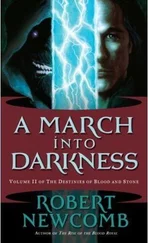Robert Pirsig - Lila. An Inquiry Into Morals
Здесь есть возможность читать онлайн «Robert Pirsig - Lila. An Inquiry Into Morals» весь текст электронной книги совершенно бесплатно (целиком полную версию без сокращений). В некоторых случаях можно слушать аудио, скачать через торрент в формате fb2 и присутствует краткое содержание. Жанр: Современная проза, на английском языке. Описание произведения, (предисловие) а так же отзывы посетителей доступны на портале библиотеки ЛибКат.
- Название:Lila. An Inquiry Into Morals
- Автор:
- Жанр:
- Год:неизвестен
- ISBN:нет данных
- Рейтинг книги:3 / 5. Голосов: 1
-
Избранное:Добавить в избранное
- Отзывы:
-
Ваша оценка:
- 60
- 1
- 2
- 3
- 4
- 5
Lila. An Inquiry Into Morals: краткое содержание, описание и аннотация
Предлагаем к чтению аннотацию, описание, краткое содержание или предисловие (зависит от того, что написал сам автор книги «Lila. An Inquiry Into Morals»). Если вы не нашли необходимую информацию о книге — напишите в комментариях, мы постараемся отыскать её.
Lila. An Inquiry Into Morals — читать онлайн бесплатно полную книгу (весь текст) целиком
Ниже представлен текст книги, разбитый по страницам. Система сохранения места последней прочитанной страницы, позволяет с удобством читать онлайн бесплатно книгу «Lila. An Inquiry Into Morals», без необходимости каждый раз заново искать на чём Вы остановились. Поставьте закладку, и сможете в любой момент перейти на страницу, на которой закончили чтение.
Интервал:
Закладка:
Not for you.
Then why do I feel so bad about it? Phædrus asked.
You’re just waiting for your medal, the idol answered. You think maybe they’re going to turn around and come back and hand you a citation for merit.
But he’s going to destroy her.
No, the idol said. She isn’t going to let him get anything on her.
I don’t believe that.
She owns Rigel now, the idol continued. He’s had it. From here on he’s putty in her hands.
No, Phædrus said. He’s a lawyer. He isn’t going to lose his head over her.
He doesn’t have to. His head’s already lost, the idol said. She’s going to use all those morals of his against him.
How?
She’s going to become a repentant sinner. She may even join a church. She’s just going to keep telling him what a wonderful moral person he is and how he saved her from your degenerate clutches, and what can he do? How can he deny it? There’s no way he can fight that. That just keeps his moral ego blown tight as a balloon and as soon as it starts to sag he will have to come back to her for more.
Whew, this was some idol, Phædrus thought. Sarcastic, cynical. Almost vicious. Was that what he himself was really like underneath? Maybe it was. A theatrical ham idol. A matinee idol. No wonder somebody threw it into the river.
You’re the winner, you know, the idol said, … by default.
How so?
You did one moral thing on this whole trip, which saved you.
What was that?
You told Rigel that Lila had Quality.
You mean in Kingston?
Yes, and the only reason you did that was because he caught you by surprise and you couldn’t think of your usual intellectual answer, but you turned him around. He wouldn’t have come here if it hadn’t been for that. Before then he had no respect for her and a lot for you. After that he had no respect for you, but some for her. So you gave something to her, and that’s what saved you. If it hadn’t been for that one moral act you’d be headed down the coast tomorrow with a lifetime of Lila ahead of you.
Phædrus didn’t like it. Judgments of this sort from a branch of his own personality were very confusing — and somewhat ominous. He didn’t want to hear any more of them.
Well, idol, he said, you may be right and you may be wrong but we are coming to the end of the road here.
They had arrived at what looked like the ruins of an old fortress. It looked somewhat the way old ruins in India looked, except those were many centuries old. It looked sort of like a castle but it was concrete and broken in places with thick rusted reinforcing rods emerging from the breaks in the concrete. Part of it looked like the wall of a small amphitheater. Apparently it was the parapet of an old fort. In one area were remains of an overhead trolley system that might have been for hauling military shells. Huge rings were in a wall apparently to take the recoil of a large cannon that was now gone. There was a beautiful leafless tree growing out of the middle of the parapet like an enormous umbrella. It was only about ten feet tall but was much wider than that.
As he walked to the northwest he could see more clearly how the remains of the old concrete structure had broken into fragments, tilted to one side and fallen into the water.
There were square holes in the concrete you could fall through. It looked as though the cracks in the concrete under his feet were ready to break any time. Apparently the breaking up and erosion were being caused by settling and probably by the action of the sea. But he guessed that the real destroyer was not the sea but that great ravager of most military installations, lack of appropriations.
It was sort of wonderful to see this old fort, built to assert man’s domination over the earth, slowly sinking into the Atlantic Ocean. It certainly looked like an auspicious place for the interment of this idol.
He found a gate that led below the concrete to a dark chamber where he could hear water down below gurgling loudly. He entered a door with vertical spiked iron posts and I-beams. It was dark inside like a grotto. The only illumination came from below.
He turned to the right by a pockmarked wall and descended five steps leading down to a small drop-off. He descended the stairs, testing the concrete carefully with his foot, went left, went forward, and then right again, into a dark tunnel. There he saw that the light came through a smashed portion of the concrete under which swept the water of the Atlantic.
There was enough light to show a dark high-water mark of the tide against the wall. He set the idol against the wall in a sitting position facing the entrance to the sea and arranged the shirt around it carefully. Within a few hours the tide should come and lift it out of here.
His mind said to the idol, Well, little friend, you’ve had quite a busy existence.
He stepped back, did a small bow with his hands clasped together in the manner he had once learned in India, and then, feeling that things were right at last, turned and left.
Back to daylight and good old sanity. A few crickets were chirping. He heard a roar in the sky and looked up and saw a Concorde airplane slowly circling to the south then rising and speeding.
Good old technology. All this twentieth-century sanity wasn’t as interesting as the old days of his incarceration but he was getting a lot more accomplished, at a social level at least. Other cultures may talk to idols and animal spirits and fissures in rocks and ghosts of the past but it wasn’t for him. He had other things to do.
He had a feeling of freshness as he walked back to the boat. What a fantastic day this was. How many people are ever lucky enough to clean the slate like this? They’re all stuck with their endless problems.
He stood on a mound of sand beside some juniper bushes and said Ahhhh! He threw out his arms. Free! No idols, no Lila, no Rigel, no New York, no more America even. Just free!
He looked up in the sky and whirled. Ahhh, that felt good! He hadn’t whirled like that for years. Since he was four. He whirled again. The sky, the ocean, the hook, the bay, spun round and round him. He felt like a Whirling Dervish.
He walked back to the boat in a kind of relaxed, nothing-to-do way, thinking of nothing whatsoever. Then he remembered when he had been walking down a dirt road like this one near Lame Deer, Montana, on the Northern Cheyenne reservation. It was with Dusenberry and John Wooden Leg, the tribe’s chief, and a woman named LaVerne Madigan from the Association of American Indians.
So long ago. So many things had happened. He would have to get back to the Indians someday. That was where he had started from and that was where he had to get back to.
He remembered it had been spring then, which is a wonderful time in Montana, and the breeze blowing down from the pine trees carried a fresh smell of melting snow and thawing earth, and they were all walking down the road, four abreast, when one of those raggedy non-descript dogs that call Indian reservations home came onto the road and walked pleasantly in front of them.
They followed the dog silently for a while.
Then LaVerne asked John, What kind of dog is that?
John thought about it and said, That’s a good dog.
LaVerne looked curiously at him for a moment and then looked down at the road. Then the corners of her eyes crinkled and as they walked on Phædrus noticed she was sort of smiling and chuckling to herself.
Later, when John had left, she asked Dusenberry, What did he mean when he said, "That’s a good dog?" Was that just "Indian talk"?
Читать дальшеИнтервал:
Закладка:
Похожие книги на «Lila. An Inquiry Into Morals»
Представляем Вашему вниманию похожие книги на «Lila. An Inquiry Into Morals» списком для выбора. Мы отобрали схожую по названию и смыслу литературу в надежде предоставить читателям больше вариантов отыскать новые, интересные, ещё непрочитанные произведения.
Обсуждение, отзывы о книге «Lila. An Inquiry Into Morals» и просто собственные мнения читателей. Оставьте ваши комментарии, напишите, что Вы думаете о произведении, его смысле или главных героях. Укажите что конкретно понравилось, а что нет, и почему Вы так считаете.











